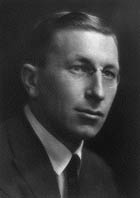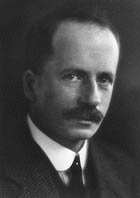 Online
Edition
Online
Edition ![]()
Letters to the editor
Milestone
Answerman
Periscope
Campus Life
Social Issues
People
Photo Features
Education
Channel
Culture & Leisure
Science
January
Doctors make history
In January 1922, insulin was first used as a treatment for diabetes.
Diabetes had been recognised as a distinct medical condition for over 3,000 years, but its exact cause remained unknown until the 20th century. Before the introduction of insulin, the only way to treat diabetes was to eat a diet low in carbohydrates and sugar but high in fat and protein. However, such a diet could only prolong patients' lives for about 1 year.
A breakthrough came in the summer of 1921. Canadian Frederick Banting at the University of Toronto produced diabetic symptoms in animals and began a programme of insulin injection. The experiment was successful and the discovery of insulin was announced to the world in 1921.
On 23 January 1922, with the support of John James Richard Macleod of the University of Toronto, 14-year-old Canadian Leonard Thompson became the first person to receive an insulin injection. The diabetic teenager recovered quickly.
By 1923, insulin was available worldwide. Banting and Macleod were awarded the Nobel Prize in medicine for the year.
Another important discovery in medicine came in January 1964. At the University of Mississippi Medical Center in Jackson, Mississippi, Dr. James D. Hardy tried to transplant the heart of a chimpanzee into the body of a 64-year-old man.
Such replacement of human organs with animal equivalents had never been attempted in the United States. Unfortunately, the patient's immune system rejected the alien chimpanzee heart and he died 90 minutes after the operation.
Despite the
failure, the attempt was influential in the development of transplantation.
Three years later, a successful human-to-human heart transplant was performed.
![]()
Quotable
Quotes
"You can
pay attention to the fact, in which case you'll probably become a mathematician,
or you can ignore it, in which case you'll probably become a physicist."
Dr. Len Evans, while teaching an honours
calculus course at Northwestern University.
"People
who watch films think they need to be provided with details. I don't want
to give them."
Wong Kar-wai, the director of In the Mood
for Love. His works are non-classical and receive divergent comments from
viewers.
"Citizens
throwing rubbish will be penalised and fined, while scholars producing
rubbish can obtain government subsidies."
Lee Tien Ming, criticising professors for
failing to produce university students of high quality while raking in
large government subsidies.
"I haven't
committed a crime. What I did was fail to comply with the law."
David Dinkins, New York City mayor from
1990 to 1994, answering accusations that he failed to pay his taxes.

Dr. Banting
(1891-1941)
Courtesy of Nobel e-Museum
Archive
Advertise
Media Links
CUHK homepage
JLM homepage
Related
Links
University
of Toronto

Dr. Macleod (1876-1935) Courtesy of Nobel e-Museum